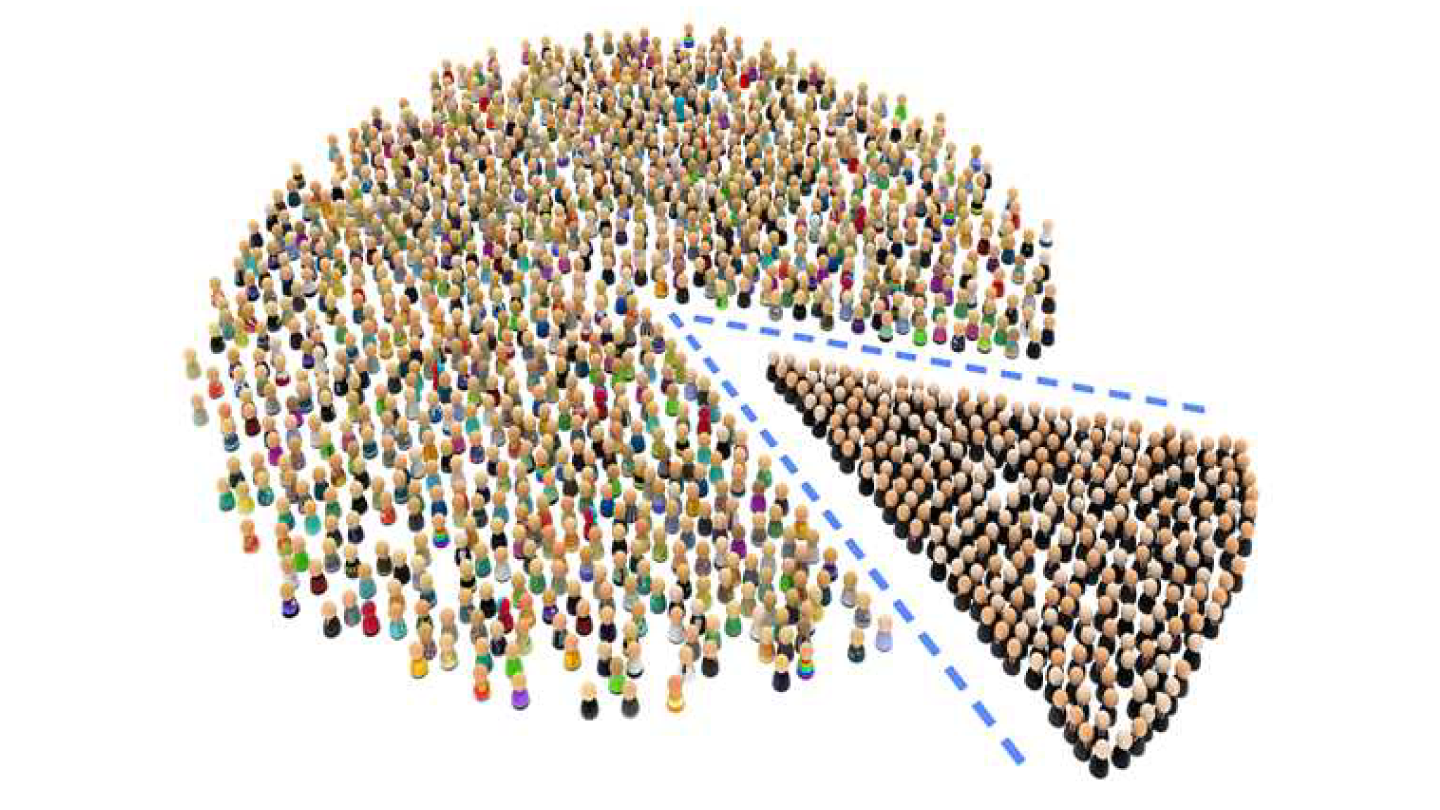A Divided 'Cashless' Society
Paul Race

The tide is changing, or at least slowing. Wherever you look people (and indeed central banks) are beginning to question what exactly is meant by a cashless society, who it benefits and whether it will necessarily have a positive impact on the societies and economies in which we live. Whether it is China or the US, it is now recognised that too hasty a move in this direction will have an adverse impact on a significant section of society and is not in everyone's best interests.
Let's take the example of China, which provides a fascinating case study of the potential and dangers of a rapid move towards a cashless society. Here mobile payments are becoming ubiquitous and no one can doubt the pace of change. Mobile payments accounted for 67.5 percent of all payments in December 2017 compared with 47.7 percent just twelve months earlier. Take up is phenomenal, reports suggest that even street buskers are receiving payment via QR codes. Surely nothing can stand in the way of this inevitable movement away from cash? And yet there is a problem.
The article highlighting the China case study (btcmanager.com - 26 September 2018), describes China as 'an exciting, dynamic economy with an irrepressible entrepreneurial spirit' but that's only part of the picture. It goes on to comment that there is a significant proportion of the population that is 'elderly, conservative, rural and technology averse'.
200 million people in China have no access to formal banking services and nearly 70 percent of rural dwellers 'still live permanently offline cash-based lives'. A large proportion of rural society in China depends on cash for survival and the removal of cash as a payment option would have an immediate and potentially catastrophic impact on the important agricultural sector. Payment system developers cannot ignore this issue. It's not marginal and it won't go away. No country can afford to leave a significant number of elderly and poorer people out of the consumer economy.
A recent article regarding the situation in China concluded that 'when apps are built on the assumption that residents of a specific community are formally enrolled in a bank or financial institution then those who are not enrolled are locked out from being able to pay'. So, what about countries like the US where as 7 percent of households are unbanked and a further 19.9 percent underbanked? Surely the same 'blockage' to any cashless society applies.
It is in that context that I have followed with interest recent reports that retailers like Amazon and Walmart have been attempting to delay a Bill prohibiting retailers in New Jersey refusing to accept cash payments. My initial reaction is why would you restrict choice and turn away customers wishing to pay in cash? Perhaps it should be viewed in the context of Amazon planning to launch 3000 cashless stores by 2021, but for others wishing to follow this route I would add a word of caution. Most recent estimates for the US are that cash still accounted for 32 percent of all payments in 2015. Can you afford to lose out on those customers who choose to pay in cash or in some instances have no other option?
For me a 7 September Forbes article entitled 'The challenge of going cashless' adequately described the current situation in the US and elsewhere: 'As the social implications of cashless payments become more apparent, companies that exclude cash will face a greater risk of reputational damage. Ultimately each business must find its own balance between efficiency and inclusion'.
Where do we go from here? The reality is wherever you look there remain significant numbers of individuals who choose to pay using cash. Any attempt to change people’s behaviour will need to involve an analysis of why they pay using cash – whether it’s for budgetary reasons, they like the feel of cash, have an aversion to cards or mobile payments for security reasons or whether they simply do not have access to alternative payment methods.
A recent article made the case for a hybrid solution that uses mobile technology to enable and enhance paper payments, but I would question whether it takes us any further forward in the situations prevalent in China and the US. Ignacio Mas, co-founder of the Digital Frontiers Institute, and a senior fellow at the Fletcher School's Council on Emerging Market Enterprises at Tufts University has taken a slightly different approach to people's continued love of cash and has proposed 'smart' banknotes as representing the best of digital and physical worlds. This solution, whereby 'notes' bearing a chip can be electronically deposited into your account or recharged (like a prepaid card) and the mobile phone becomes your 'personal ATM' may deliver the feel of physical cash but it doesn't address the issue of the unbanked or indeed those reluctant to use new technology.
Whichever way we look at it there remains a large segment of society that wants or needs to pay using cash. Long term efforts to improve financial inclusion will improve people's payment options but are unlikely to result in a quick fix or wholesale adoption of cashless payments by those affected.